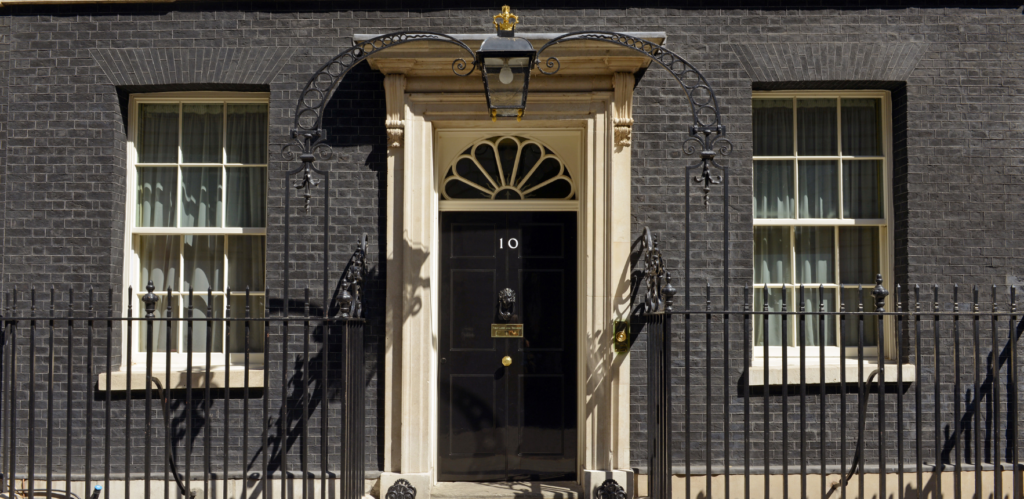23.07.2024 | 6 min read
Our reaction to the new UK government’s plans – yes to growth, but only if we’re growing the right things
Our take on the new UK government’s plans: A step forward for wellbeing… but now is the time for a giant leap.The theme of everything we are hearing from the new administration is ‘economic growth’. In some ways, this is understandable, given the past few years of economic stagnation.
But here at the World Wellbeing Movement, we would urge the government to take a step back and focus on the ultimate goal of government: improving the quality of people’s lives, or, as World Wellbeing Movement Board member and former Cabinet Secretary, Lord Gus O’Donnell so eloquently puts it: ‘Building Better Lives’.
Delving into the King’s Speech last week, we were encouraged to see that there are some policies that will explicitly help with this goal, for example:
- the commitment to improve the NHS as a service for all, including reducing waiting times, improving mental health provision, and focusing on prevention.
- the promise to “ensure mental health is given the same attention and focus as physical health”, and to “modernise the Mental Health Act so it is fit for the twenty first century”.
- the Bill to raise standards in education and promote children’s wellbeing.
- the government’s commitment to worker’s rights, including legislation “to ban exploitative practices and enhance employment rights”.
- the bill to “progressively increase the age at which people buy cigarettes and impose limits around the sale and marketing of vapes”.
- the promise of legislation to “restrict the advertising of junk food to children along with the sale of high caffeine drinks to children”.
Whilst the links to health and wellbeing are obvious in the above examples, it’s fair to say that almost every policy area has implications for our wellbeing. There are clear wellbeing benefits to some less obvious policies mentioned in the Kings Speech, for example:
- the government’s promise to “accelerate the delivery of high-quality infrastructure and housing”. We know that poor-quality or unaffordable housing, or indeed not being able to access housing at all, can lead to stress and instability. This is very welcome and there is research to indicate it can improve the quality of peoples’ lives.
- The promises to improve public transport with better train and bus services. This will help people get to work, school or social events, and even access essential services. Again, a welcome measure to reduce social isolation and improve wellbeing.
Our call now is for the government to go further and prioritise the growth of population wellbeing over mere GDP growth alone. In fact, research shows that when you focus on improving wellbeing, economic benefits will follow.
‘Putting wellbeing first’ means evaluating all government policies against their impact on the nation’s wellbeing, in a similar way to how civil servants already assess a policy’s financial return on investment. The framework for incorporating wellbeing considerations into government policy, including how to assess wellbeing impacts in cost-benefit analyses, is already there – the Treasury has had approved guidance for this since 2021 – but it is not widely or consistently applied.
The phrase ‘taking a top-down approach’ gets over-used, but that is what we are recommending here. Instead of looking at a laundry-list of individual activities, some of which will explicitly improve wellbeing, and some of which won’t, we recommend the government starts at the top, and focuses on the over-arching goal: to improve population wellbeing. With this lens on, it will become easier to prioritise those policies which will deliver the biggest improvements to population wellbeing.
We’d urge the new government to shift away from obsessing about inputs (the activities you do) to measuring outcomes (the positive impact these make).
Taking a top-down, outcome-focused approach would require greater use of empirical evidence to inform new policies. After all, how else can you determine which policies will deliver the biggest wellbeing bang for their buck?
World Wellbeing Movement co-founder, Professor Lord Richard Layard, along with other wellbeing science experts, who have championed this wellbeing approach for a long time will soon publish a comprehensive value-for-money analysis. This report will evaluate the costs of certain policies against the impact they have on the nation’s wellbeing. The report is due to be published in September 2024.
Overall, we were heartened to see so many new bills in the King’s Speech that will positively impact the nation’s wellbeing. It’s most definitely a step in the right direction. But it’s possible to go from a step to a giant leap if every new policy is looked at through this wellbeing lens. Only then will there be a paradigm shift in how we are all feeling.
Header image: The door to 10 Downing Street. Image credit Canva
